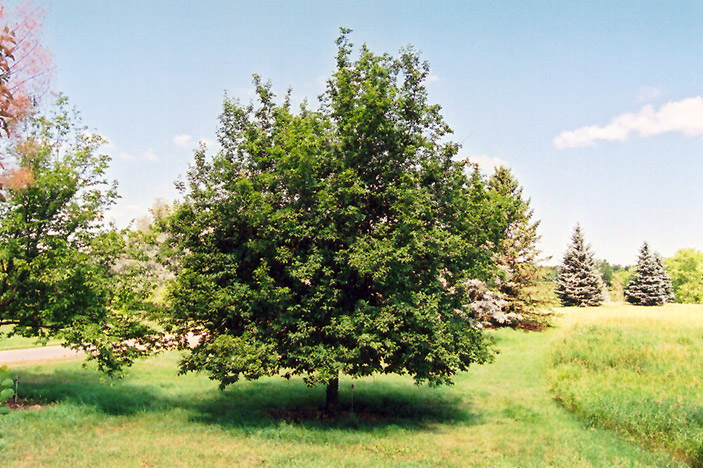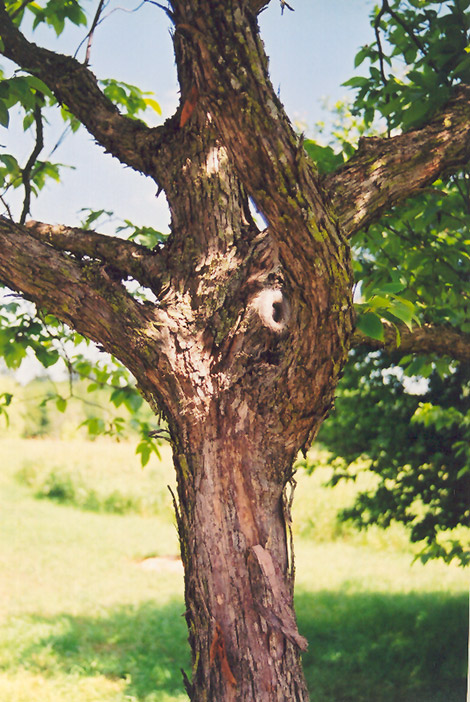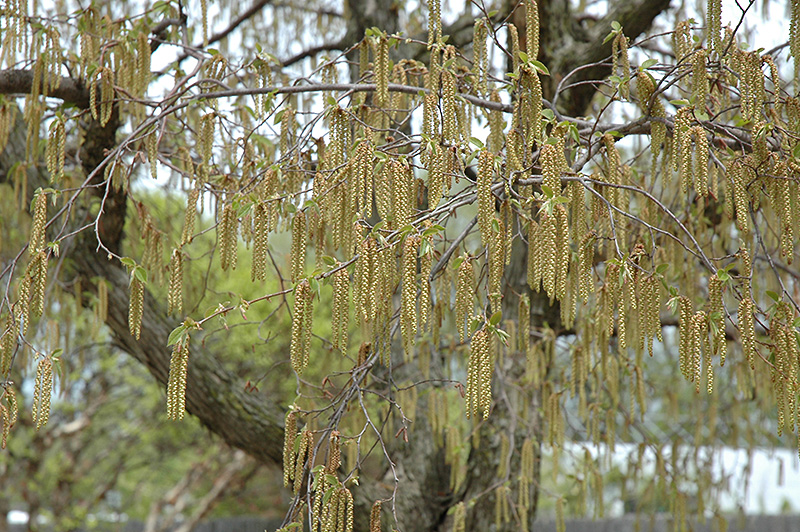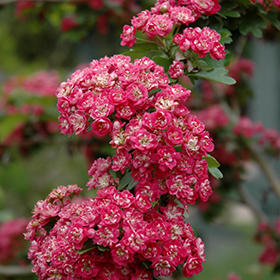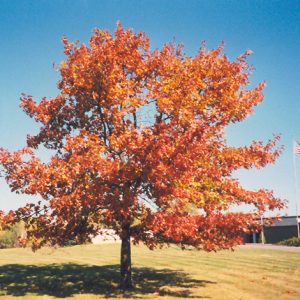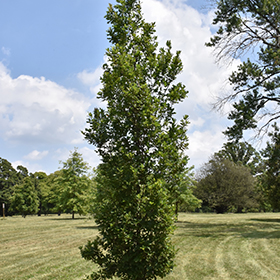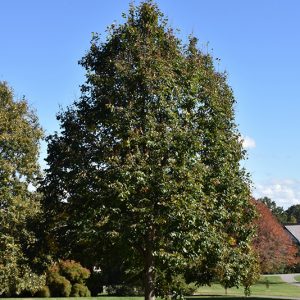Description
Growth & Care
| USDA Plant Hardiness Zone | 3a |
| Growth Rate | Slow |
| Recommended Pruning Method | Late Winter Pruning |
Foliage
| Foliage Type | Deciduous |
| Fall Color | Yellow |
| Plant Form | Oval |
Flowers
| Flower Fragrance | Unscented |
Additional Categories
| Additional Category | Hop Hornbeam |
| Landscape Application | Shade |
Details
Planting & Growing
Hop Hornbeam will grow to be about 30 feet tall at maturity, with a spread of 20 feet. It has a low canopy with a typical clearance of 4 feet from the ground, and should not be planted underneath power lines. It grows at a slow rate, and under ideal conditions can be expected to live for 70 years or more.
This tree does best in full sun to partial shade. It is very adaptable to both dry and moist locations, and should do just fine under average home landscape conditions. It is not particular as to soil type or pH. It is quite intolerant of urban pollution, therefore inner city or urban streetside plantings are best avoided, and will benefit from being planted in a relatively sheltered location. Consider applying a thick mulch around the root zone in winter to protect it in exposed locations or colder microclimates. This species is native to parts of North America.
Landscape Attributes
Hop Hornbeam is an open deciduous tree with a shapely oval form. Its relatively fine texture sets it apart from other landscape plants with less refined foliage.
This is a relatively low maintenance tree, and is best pruned in late winter once the threat of extreme cold has passed. Deer don't particularly care for this plant and will usually leave it alone in favor of tastier treats. It has no significant negative characteristics.
Hop Hornbeam is recommended for the following landscape applications:
Shade
Ornamental Features
Hop Hornbeam has dark green deciduous foliage on a tree with an oval habit of growth. The serrated pointy leaves turn lemon yellow in fall. It produces small clusters of tan hop-like fruit from late summer to mid fall.
